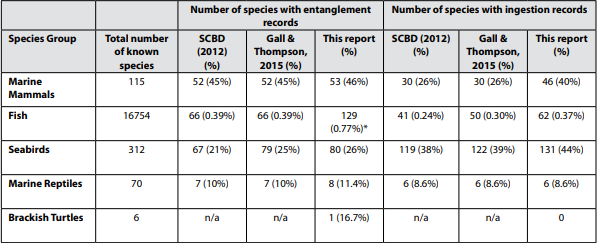TWH – On March 2, delegates to the Fifth United Nations Environmental Assembly (UNEA-5.2) voted to draft a legally binding international agreement to end plastic waste. That draft of an agreement would be ready to sign by 2024. The “End Plastic Pollution” resolution addresses “the full lifecycle of plastic,” which includes plastic production, design, and disposal.

Inger Andersen, Executive Director of the UN Environment Programme (UNEP) said, “Today marks a triumph by planet earth over single-use plastics.”
Previously, the UN Environment Assembly (UNEA) occurs every two years. COVID changed that. The Fifth UNEA occurred in two parts. The first part, UNEA 5.1, occurred online February 22 – 23, 2021. The second part, UNEA 5.2, occurred in Nairobi, Kenya from February 28 to March 2, 2022, online and in person.
UNEA 5.2
UNEA 5.2 reported that about 3,400 people attended in person and 1,500 attended online, and represented 175 countries.
The proposed agreement would regulate the production, design, and disposal of plastics. The President of UNEA-5, Espen Barth Eide, said, “Plastic pollution has grown into an epidemic. With today’s resolution, we are officially on track for a cure.”
The ”End Plastic Pollution” resolution sets up an Intergovernmental Negotiating Committee (INC). That committee will begin to write the agreement this year. Each nation that signs this agreement will be able to develop its own approach to meet its goals. In that respect, it is similar to the Paris Climate Agreement.
By the end of 2022, the U.N. Environment Program (UNEP) will convene a forum, aligned with the first session of the INC. That forum will share knowledge and best practices from across the globe. The INC will report on its progress from 2022 through 2024. Once the INC has finished the proposed agreement, UNEP will convene a diplomatic conference for the official signing.
UNEA 5.1
A total of 153 U.N. Member states sent delegates to UNEA 5.1. These delegates discussed how to build a post-pandemic world. UNEA 5.1 identified the triple crises facing the planet as “climate change, biodiversity, and pollution.” Just prior to UNEA-5.1, the U.N Environmental Programme issued a 168-page report, “Making Peace with Nature.” That report proposed a blueprint to resolve those triple crises.
The European Union (EU) reported that, at UNEA-1, the European Union and U.N. Environment Programme together launched the Global Alliance for Circular Economy and Resource Efficiency. The creation of that body formed part of the European Green Deal. It will coordinate initiatives related to the transition to a circular economy. Canada, Chile, Colombia, Japan, Kenya, New Zealand, Nigeria, Norway, Peru, Rwanda, and South Africa, and the 27-nation European Union have joined that alliance already.
The Ellen MacArthur Foundation defined “a circular economy” as one based on three principles. First, people have to end waste and pollution. Second, products and materials should circulate at their highest value. Third, people have to restore nature. It rejects throwaway culture.
Plastic Waste
Plastic waste upsets the balance of nature because of its artificial chemical construction. It is typically not biodegradable. Animals, birds, and fish can ingest plastic waste. Microplastics are pieces of plastic 5 millimeters (0.2 inches) or less in size. They pose an insidious threat. Animals, including humans, can breathe them in without knowing it.

UNEA 5.2 reported that, in 1950, manufacturers produced 2 million tonnes of plastic. By 2017, they had increased annual production to 348 million tonnes of plastic. About 11 million tonnes of plastic flow in oceans each year. At least 800 marine and coastal species either ingest or become entangled in plastic debris. Plastic waste threatens the “fertility, hormonal, metabolic and neurological activity” of humans.
Prior United Nations work on plastic pollution
Plastic waste crosses boundaries. It gets swept into waterways which bring it into the world’s oceans. Once there, it could wash up on beaches far away from where it was discarded. Plastic waste can also contribute to one of the ocean’s garbage patches. The Great Pacific Garbage Patch is the best known. A global problem, plastic pollution cannot be solved within the borders of a single country.
This resolution, “End plastic pollution,” builds on prior U.N. resolutions. In 2015, the U.N. General Assembly adopted the 2030 Agenda for Sustainable Development. In 1992, it adopted the U.N. Rio Declaration on the environment and development.
The U.N. may be well suited to resolving tensions between environmental protection and economic development. People in impoverished countries fear that protecting the natural world means hindering their development. In the developed world, workers have similar fears, which are often exploited politically.
Many U.N. bodies have been developing policies to resolve those worries. Rwanda and Peru led the effort to pass the “End Plastic Pollution” resolution, indicating some success.
Reaction from environmentalists
The U.N. operates in a world different from that of activists and advocates. Inside Climate News had a supportive, if somewhat wary, take on the resolution. It reported that UNEA 5.2 “gave environmental advocates much of what they were looking for: a broad definition of the problem to include pollution across the plastics life-cycle, from production to design to disposal.” It acknowledged future difficult problems around money and enforcement. Inside Climate News forewarned that the oil and chemical industries would resist efforts to curb plastic production.
Inside Climate News reported that Jane Patton of the Center for International Environmental Law said, “We have two years to negotiate an entirely new agreement, and a powerful plastics and petrochemical lobby will fight it all the way.”
The Wild Hunt is not responsible for links to external content.
To join a conversation on this post:
Visit our The Wild Hunt subreddit! Point your favorite browser to https://www.reddit.com/r/The_Wild_Hunt_News/, then click “JOIN”. Make sure to click the bell, too, to be notified of new articles posted to our subreddit.
